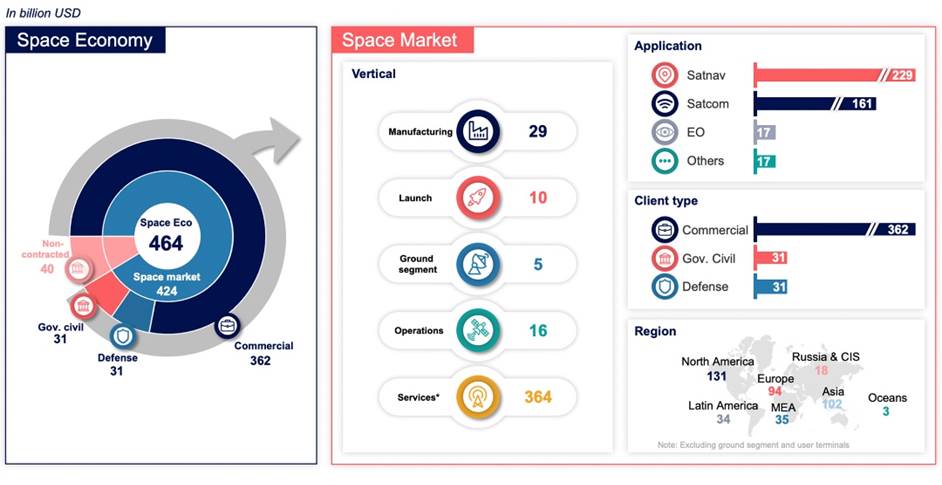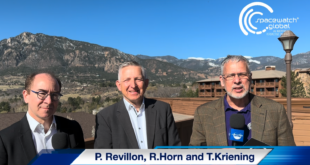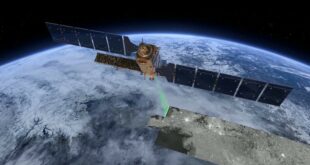
Ibadan, 10 January 2023. – Euroconsult has released the 9th edition of its annual space market overview to cover the past 12 months and forecast the next 10 years for the industry. The report charts highs that contributed to the continued growth of many aspects of the commercial sector, despite the ongoing challenges of the world geopolitical and world economic environment.
According to Euroconsult, the fast-growing commercial space sector enjoyed another year of significant growth and productivity within the period. However, it did not escape unscathed from rising geopolitical tensions and operational challenges resulting from inflation, high interest rates and the after-effects of 2021’s pandemic lockdowns on supply chains.
The global space consulting and market intelligence firm estimates that the global space market grew by 8% last year and should reach over $737 billion within a decade. As with previous editions of the report, the sector’s primary value (83%) is in space-based end-user applications, surpassing telecommunications, Earth observation and companies utilizing satellite navigation to deliver services to their customers. However, the firm deliberately breaks out the “core” space sector – organizations that make or own space assets – as a key focus. As a result, it estimates that activity throughout the value chain will grow from $70 billion in 2022 to $100 billion by 2031. Accordingly, segments such as manufacturing, launch services and the ground segment will drive this growth.
Euroconsult also reports that industry investors are now focusing on cash-generating companies or early start-ups that require low levels of capital. This is against higher risk investments into pre-revenue enterprises that occurred regularly in the preceding years. Accordingly, it has resulted in a slowdown of new investment into the sector and a move towards a more results-oriented approach in what remains a very competitive and agile market, with the average investment value dropping dramatically between 2021 and 2022 from $71 million to $33 million.
Conversely, the Space Economy Report also highlights the more positive financial implications arising from certain market trend throughout the space value chain and increased government budgets for space technologies with more countries joining the sector than ever before. The public sector has also boosted private businesses, while planned satellite constellations have positively impacted the expansion of manufacturing and other supply chain activities despite temporary bottlenecks.





